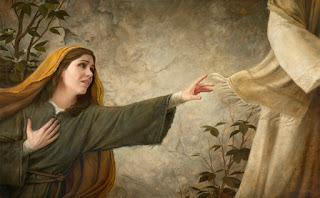I have carried with me a sense of powerlessness my whole adult life. I know I did not bring this with me from my pre-existance because I know instinctly this is not who I am. I am not a powerless person yet the sense of powerlessness has been the bane of my life and has held me back from my fullest potential and greater success in this life. I consider my spiritual life well developed but anything of temporal nature has been a struggle for me and fulfillment in many ways has eluded me. This sense of powerlessness has damaged my self-esteem and robbed me of self-belief to the point that I have many times felt I have been a failure in my life. Recently the frustration of this noose around my neck reached its peak.
I have known for some time that this weakness had come to me from many generations of my family who were poor oppressed European peasants, that had existed from the time of the feudal system to socialism, and who believed they could never rise above their station in life. I had seen this powerlessness perpetrated in my family throughout my childhood and early adulthood in Europe. I have known my family's thoughts, their false beliefs and their words of affirmations that invited suffering into the lives of my immediate family. From the time that I have received the Gospel in my life, I have not been able to understand why I was born into this lineage. I am the different one, the one that seeks and knows and loves God. The one that has largely departed from my roots. My recent sense of frustration over my life sent me to my knees where through bitter tears I spat out to God that I hated my family and all the generations I have come from; that I hated who they were and what they have saddled me with. I had never expressed such venomous thoughts before, to myself or to others, let alone to God. I begged to understand why I was sent into this family and why I carried their burden. Within half an hour of my prayer, my heart and mind were flooded with immense understanding.
When the Saviour said 'my sheep hear my voice' (John 10:27) he was referring to those who are so spiritually advanced that they recognise and wholeheartedly embrace the truth when it is presented to them. Bruce R. McConkie taught it is a spiritual gift that was developed in pre-existance. I was 16 when I sought and immediately accepted the Gospel into my life. I count myself as one of His sheep. What has all this got to do with my ancestors? It was given to me to understand that those who are His sheep are often sent to families who need a spiritual shepherd to help them with their unbelief. I came to understand that the sense of powerlessness in generations of my family had blinded them to a 'hope through the atonement of Christ and the power of his resurrection, to be raised unto life eternal' (Moroni 7:41); that what once was a temporal has now become a spiritual stumbling block. I came to understand that no amount of saving ordinances which I can do here in the temple can do anything for them unless this sense of powerlessness was removed so they can believe that they can rise to godhood. I came to understand that my long held desire to bring souls unto Christ had more to do with generations of my family than with any other people I can yield influence over living here during my life time. I came to understand that it is up to me to eliminate this feeling of powerlessness in my life and therefore eliminate it from generations past and generations to come. This made me understand that what we do and overcome in this life reverberates throughout generations that have been and the generations that are yet to come; that it reverberates through the genetic cord which binds us and unites us in a collective effort to rise to our potential; that what we achieve and overcome here in mortality echoes throughout eternity. I came to understand that we are one and that the power to lift one another to higher ground that we might all become co-heirs with Christ is one of the greatest tender mercies of the Lord.
Living by faith is a hard road. Glimpses into heaven such as these however make the journey bearable and the road illuminated. They propel us upward and above the world. They open our hearts to the witness of the plan of salvation and the reality of our real home. They make us know who we are; that we belong to Him who has loved us and made us free, to Him who has prepared heavenly mansions for our eternal abode; Him who has spiritually begotten us as His sons and daughters; Him who has made the immortality and eternal life of man possible; the Saviour, the Redeemer, the Everlasting Father, the Almighty God, the Son of Righteousness, the Great I Am, the Lord of Glory, the King of Kings, the Stone of Israel. All glory be His forever.
"Hast thou not known?
Hast thou not heard, that the everlasting God,
the Lord, the Creator of the ends of the earth,
fainteth not, neither is weary?
There is no fathoming of his understanding.
He giveth power to the faint;
and to them that have no might
he increaseth strength.
Even the youths shall faint and be weary,
and the young men shall utterly fall:
But they that wait upon the Lord shall renew their strength;
they shall mount up with wings as eagles;
they shall run, and not be weary;
and they shall walk,
and not faint."
- Isaiah 40:28-31








